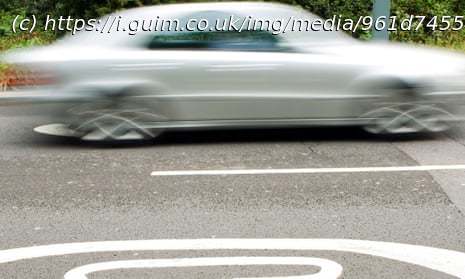All new cars must have the devices from 7 July, adding fuel economy as well as safety. Will mpg become the new mph?
In the highway code and the law courts, there is no doubt what those big numbers in red circles mean. As a quick trip up any urban street or motorway with no enforcement cameras makes clear though, many drivers still regard speed signs as an aspiration rather than a limit.
Technology that will be required across Europe from this weekend may change that culture, because from 7 July all new cars sold in the EU and in Northern Ireland must have a range of technical safety features fitted as standard. The most notable of these is intelligent speed assistance – or colloquially, a speed limiter.
The rest of the UK is theoretically free, as ministers once liked to put it, to make the most of its post-Brexit freedoms, but the integrated nature of car manufacturing means new vehicles here will also be telling their drivers to take their foot off the accelerator. Combining satnav maps with a forward camera to read the road signs, they will automatically sound an alarm if driven too fast for the zone they are in.
Drivers of most new cars will be familiar with similar features already installed, but they are currently easy to override. According to a representative at one large manufacturer: “You’ve got to balance whether it makes the car safer – but it’s driving people mad. In practice, we’re finding that a lot of people are switching it all off.”
From now on, however, cars will be designed with systems that are impossible to permanently turn off, restarting each time the engine does. Will car lovers see this as pure progress?
“It’s one of those things that it’s very difficult to argue against,” says Steve Fowler, an automotive consultant and former editor of Autocar. “Sticking to speed limits is not only is going to save you in no end of ways, it’s going to potentially save lives.






